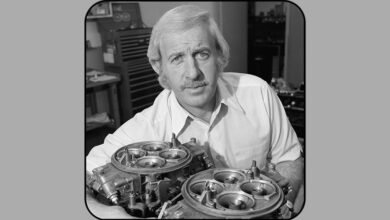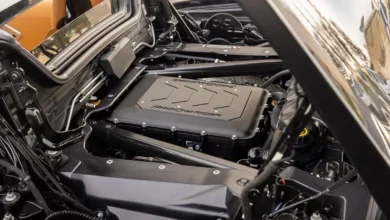Industry to NHTSA: Quit Stalling Replica Vehicle Production
SEMA is prepared to challenge the National Highway Traffic Safety Administration (NHTSA) in court if the agency fails to take immediate action to implement the low-volume replica car law. SEMA has been in regular communication with NHTSA regarding the Fixing America’s Surface Transportation (FAST) Act, but the agency has yet to fulfill its role as legislated by Congress, according the SEMA.
The 2015 law allows small automakers-defined as those that produce fewer than 5,000 vehicles globally per year-to sell up to 325 turn-key replica cars annually in the U.S. A provision in the law tasked NHTSA to establish a process for companies to register with the agency or add additional regulations by Dec. 4, 2016.
“Passage of the FAST Act in 2015 was a landmark moment since low volume auto manufacturers could now produce turn-key replica vehicles for customers nationwide,” said Christopher J. Kersting, SEMA president and CEO. “While the law was celebrated by industry and enthusiasts alike, NHTSA’s continued delays have frustrated replica car companies and consumers.
“The replica car provision was designed to be easy for NHTSA to implement, as it simply extends the common-sense approach to overseeing kit-car production that the agency has employed for decades.”
Prior to enactment of the FAST Act, U.S. rules regulating automobiles dated back to the 1960s and were originally designed for mass production companies. The lack of regulatory flexibility prevented small businesses from manufacturing turn-key cars.
The current delay is creating financial hardship for small businesses committed to the program, according to SEMA. The new law led to increased investments by replica car companies to open new facilities, and purchase equipment and supplies shortly after the law passed. Sales remain on hold.
Hundreds of classic car enthusiasts have sent letters asking U.S. Department of Transportation Secretary Elaine Chao to instruct NHTSA to stop dragging its feet, according to SEMA.
SEMA has also suggested several ways for the agency to allow replica vehicle production to begin. One idea it pitched was to allow companies to register with NHTSA as the agency pursues a rulemaking.
While NHTSA has failed to take advantage of the alternatives, it has inflicted harm on the industry through its inaction,” SEMA stated in a news release. “SEMA is ready to ask the court to intervene and eliminate the harm.”



